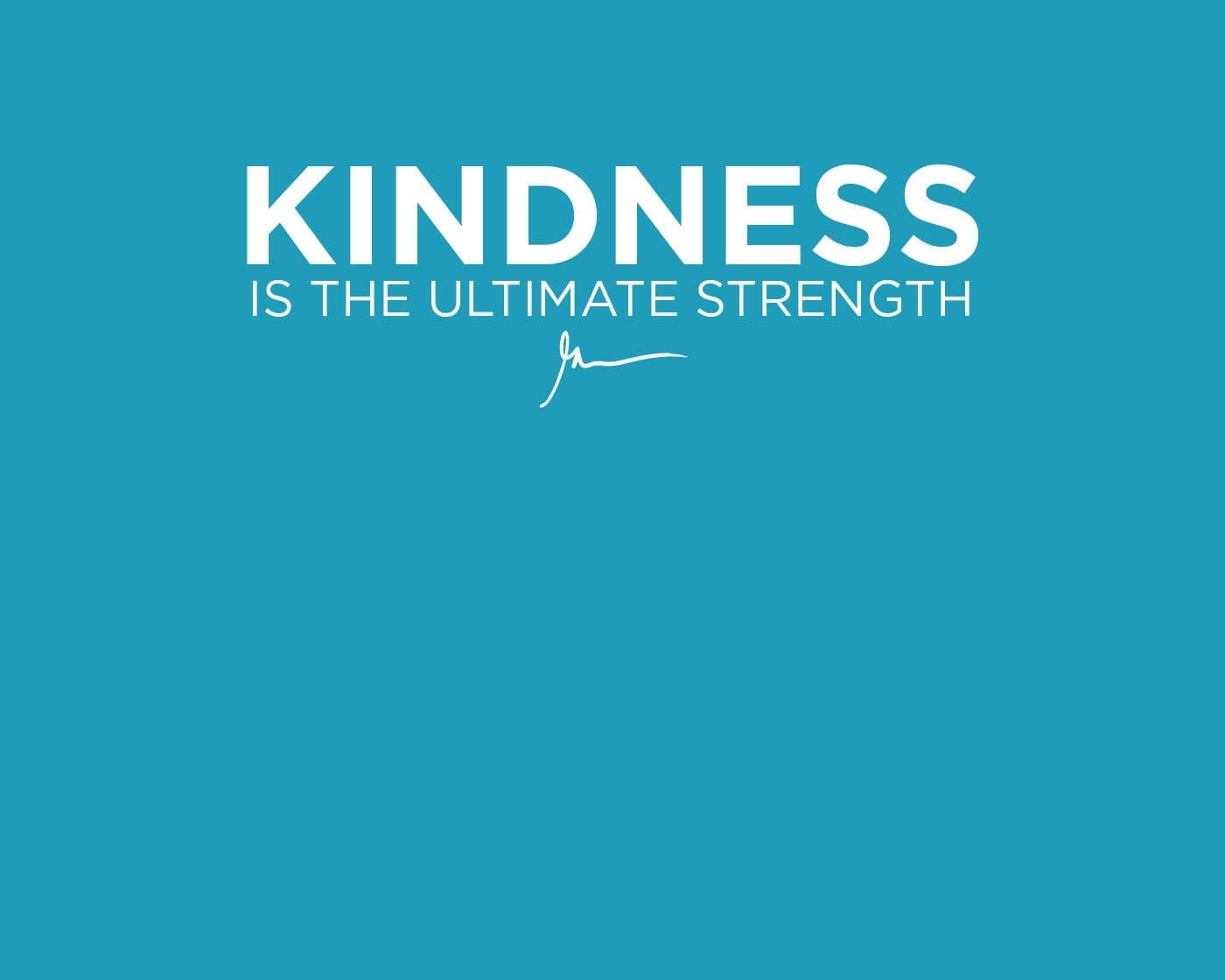Over the past few months, I’ve been pushing kindness more heavily than anything else.
For me, it’s a crucial part of the legacy I’m building. I want to build big businesses and buy the Jets, but I want to do it by being a good guy. I have zero interest in building the biggest building by tearing other people down.
The problem is that most people see kindness as a weakness. They confuse it with being passive or being a pushover.
The truth is, people who view kindness as a negative are just insecure themselves. You can only be kind if you feel that you’re coming from a place of leverage.
That’s why I see kindness as a massive advantage, not a passive trait — especially if you’re a naturally “tough” person.
As I go through my own life, I’m realizing more and more how kindness is such a big part of the equation. It’s not just about sales and negotiation. It’s not just about doing what you love. It’s not just about hustle.
That’s why It breaks my heart that so many people think “nice guys finish last.”
People don’t get that kindness is the best business strategy.

Here’s why:
1) Kindness builds emotional capital
If you give value to someone else first in business, you have the leverage. I truly believe that.
It’s why I give 51% of the value in every relationship. It’s why I deploy compassion when people are mean. It’s why I make time to interview for small podcasts and blogs (even though people tell me it’s stupid).
But let’s be clear: I’m not Mother Teresa.
I just think it’s a smart thing to do, both in business and in life.
The more I give, the more emotional capital I build, and the more my reputation grows. If I want to, I can cash in on that — like when I have a sneaker or a book coming out (even though I prefer not to).
Secondly, you never know where the people you impact are going to end up. As they get more opportunity in their own lives, they might end up as the CEO of a big company, or some other influential position — and that connection could end up being super valuable in some way.
Even if they don’t have a “high status” job, that “karma” from being kind could come back to me in a different way — like someone sharing a piece of my content or telling their friends to buy my wine.
You never know what opportunities you’d get behind your back by being a good person. You’d never know what kind of opportunities you’d lose by being a bad person.
2) It creates stickiness with employees
The biggest issue for most is they see bad behavior get ahead in the short term. They see mean people in corporations getting promoted. They see entrepreneurs who built big companies being rude to their people.
And based on that, they get tricked into thinking being a jerk is how you win the whole game.
A lot of companies get tricked into this too.
They get caught up in maximizing 90-day numbers at the expense of how their employees are treated.
But if you’re using negativity to control people who are working for you, they’ll build resentment that’ll affect your business long term.
At VaynerMedia, our Chief Heart Officer (aka Head of HR) sits 2nd from the top on the org chart. She’s the 2nd most important person in the company.
And if there’s ever any debate between what’s good for our people and what’s good for our bottom line, she’ll win that debate 9 out of 10 times.
3) It’s always rewarded
Kindness always gets rewarded. Somebody is always watching.
People take notice when you deploy kindness and at some point, your life will be affected because of it.
Even if you’re in a confined space, talking to only one other person, that person will know when you’re being kind. Especially if they’re not expecting it.
Even if they’re mean to you in the short term, you never know — they might change their character 10 years later. They might become a different person. And when they do, they’ll remember what kind of person you were.
The reality is, the amount of opportunity gained by good people because of their kindness is enormous.
Think about it. How many times have you done something that’s affected a person’s life entirely based on how you felt about them?
It happens all the time.
Counterintuitively, the biggest reason I’m able to be so kind and generous to other is because I have zero expectation of getting anything in return. I don’t expect anyone to reciprocate, and that’s exactly what allows me to keep on giving.
And when come from that place, you’ll get more opportunities than you know what to do with.

To get a “behind-the-scenes” look into how we wrote this article, check out this podcast.











